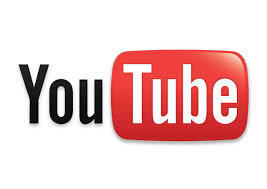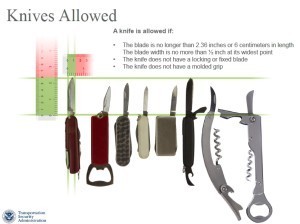Phil Elmore's Blog, page 25
July 17, 2013
Technocracy: Anti-Vaccine Jenny Comes to ‘The View’
And if there is no evidence, it means Big Evil Corporations covered it up. Obviously.
My latest WND Technocracy column is another in a series of pieces attempting to debunk the myth of vaccine-caused autism.
To the credit of WND, while my opinion is contrary to sentiments held among other contributors to the site, I’ve never been
made to feel like I can’t express it (and express it vehemently, as I so often offer my opinions).
Anybody who tries to tell you, therefore, that WND is somehow monolithic or even “anti-science” is just plain wrong. A wide variety of opinions, albeit most of them from a conservative or libertarian point of view, are offered at WorldNetDaily.
Read my full column, and therefore my latest salvo across the bow of the good ship Jenny McCarthy, here in WND News.
July 10, 2013
Technocracy: How the Net Shatters Marriages and Families
In the history of ugly people relocating across the country for the purpose of fulfilling romantic fantasies, not one single person involved has ever been better off for it.
My WND Technocracy column this week is about the people who destroy their lives and their families by hooking up with some hideous Internet gargoyle and then moving that person into their real lives.
This happens more often than you might think.
It is never a good idea.
Read the full column here in WND News.
July 7, 2013
Phil Elmore on “Unraveling the Secrets”
July 3, 2013
Technocracy — Threats on the Net: Don’t Try This At Home
My WND Technocracy column this week is about the fallout of making even “sarcastic” threats online.
All online threats like this have in common the fact that those reading or viewing them have no reason not to believe them.
Threaten people and you can and will end up in jail facing time. Several people have learned this lesson already, including a couple of kids who made threats while playing online games.
Then too, there’s James Yeager, the firearms instructor who had his carry permit pulled when he made incendiary threats on YouTube.
Read the full column here in WND News.
June 27, 2013
That Time I Had Writer’s Block
I have been a full-time, professionally employed technical writer for nineteen years. I’ve written I don’t know how many hundreds of thousands of words of documentation for industrial machinery during those years. I’ve also contributed to multiple gun and knife magazines in the last two decades. For all of that time I have written fiction, too, and seven years ago I began writing action novels for Harlequin Enterprises’ Gold Eagle. As of this date I have written eighteen action novels that have seen international publication, not counting the ones I’ve ghost-written. I have produced for payment no less than 1,380,000 words. You read that correctly: one million, three-hundred eighty thousand words.
But I had never had writer’s block.
That is, I had never had writer’s block until the last 85,000 words of that nearly 1.4 million. While writing my most recent action novel I discovered I was having a problem. Where previously I could lock myself away, sugar myself up, deprive myself of sleep, and crank out novel after novel under tight deadlines while working on multiple projects, I found myself staring at my laptop screen for hours at a time… and producing nothing. I would start a day full of energy, picturing the number of chapters I would produce. By the end of the day I would realize I’d spent all day working and not managed to complete so much as a chapter.
I would e-mail my editor and tell her I was almost done. I believed it, too; at similar stages in previous books I had been only days away from completion. But time came and went and the book still wasn’t done.
I started to wonder what was wrong with me. Was it my work ethic? Was I losing my edge? Had I run out of ideas? Why was I having so much trouble?
Worse, because every good writer defines himself as a writer, I started to experience problems of identity. If I couldn’t produce my work, what and who was I? What was my value? Couldn’t I just sit down and finish? Think. THINK! These self-damning critiques became a drumbeat in my head. Why can’t you finish the book, Phil? What’s wrong with you?
And then one day the clouds parted, the mist evaporated, light shone at the end of the tunnel, a light bulb went off over my head, and I realized I was writing a sentence consisting only of hackneyed, timeworn phrases.
No, sorry, that wasn’t it. No, what happened was that I had to sit down and finish plotting out the next novel on my contract. Doing so forced me to think about story, not about workload. In other words, I had to actually make my brain work conceptually rather than mechanically. I was concerned with the tale to be told, not with the pages to be filled. That’s when I realized what had been happening over the last several months.
I’ve had writer’s block, I thought to myself. That’s what it is. That’s why I’ve had so much trouble.
And just like that, it was gone. Suddenly the book I had been struggling to finalize and proof started to come together more quickly in hours than it had in weeks. I’m well on my way to finishing it now, and have made considerable progress on the next book as well. Of course, all this work takes place while I produce other work — I work the equivalent of three full-time jobs, give or take — and therein lies the issue.
I had been so productive I stopped being productive altogether.
As we grow more experienced we also grow older. I’ve lost the ability to pull the all-nighters I once used to do routinely when finishing a novel. I just can’t manage it anymore. My body is willing, but my brain rebels, and it is that traitorous, treacherous brain that runs the show. The more I work, the more I feel the strain on my thoughts, and over the last few months the cumulative toll of my workload finally beat me.
I’m a workaholic. My best friend is a workaholic. The people we tend to affiliate ourselves with professionally are all workaholics. It’s a fact. But even workaholics have limitations. It is possible to be so productive that you burn yourself out and, if you don’t take the time to recognize the problem and deal with it, your brain will go on strike. You’ll still be putting in the same hours; you’ll still be getting as little sleep; you’ll still feel as much stress… but you won’t actually get much done.
Therein lies the solution, at least in my case, to writer’s block. You’ve got to step back. You’ve got to think of the story first. You’ve got to set a workable schedule. When you reach the burn-out stage, you have got to rest. You don’t have a choice. A writer’s most developed muscle is his brain. If you don’t treat your brain well, you’re going to break it. It’s the only one you’ve got.
I’ve set a more reasonable pace for myself accordingly. The result is that I’ve been much happier and much more productive, which is what this profession is all about.
June 26, 2013
Technocracy: Online Connections and the Death of Shame
My WND Technocracy column this week was inspired by an interaction I had with a representative of a Ninjitsu dojo in California. I was being harassed by one of the school’s students, who went so far as to create a Twitter account to impersonate me and pretend to be a racist.
Any of the people we meet online could become our good friends in real life. And any of them could, by their behavior, shame us and threaten us.
When I let the owner of the school knew that one of his students was behaving publicly in a vulgar, profane, and disgraceful manner, the folks in charge didn’t care. Their attitude was basically that as long as the student in question hadn’t done anything to offend them personally, his public conduct was none of their concern, good-day-to-you-sir.
This was eye-opening because in all serious martial arts clubs and schools, disgraceful and criminal conduct of the type displayed by this particular student would be grounds for throwing that student out of the school — or, at the very least, disciplining or sanctioning him in some way. The entire affair struck me as symbolic of the death of shame in our culture.
Read the full column here in WND News.
June 21, 2013
Boundaries
When I started writing about assertive living — a philosophy I call “martialism,” which isn’t militaristic despite what the name implies — I stressed heavily the importance of setting and maintaining boundaries. Boundaries establish your expectations of other people. It’s a question of mutual respect: If you establish and then defend certain guidelines for how others conduct themselves when interacting with you, everyone benefits. You are, in effect, writing a rulebook for every encounter you have with another person.
All business relationships are about power. The most audacious and successful people in business are those who assume and take power — those who seek forgiveness rather than permission. A great deal of power is created and acquired simply by acting as if you have authority.
The opposite is also true. Very early in my working career, when I was fresh out of college, I made an offhand comment to a coworker that was misunderstood. A third party, someone I liked who was in a position of authority (I was probably the lowest person on that particular totem pole) was told an inaccurate version of what I said. He then phoned me and cursed me out before hanging up in my ear.
As a young man I was aghast at having so angered this person unintentionally. My gut reaction was to grovel — to bow and scrape and beg for forgiveness. Three years later, when I worked for my father’s business, his domineering attitude (reinforced by years of paternal interaction) led him to speak to me in ways that would get you sued if you treated a non-family employee that way. Some time after that, when I worked for a grumpy fellow who was the sole proprietor of his publications company, I realized at some point that precisely the same interaction my father and I had in the workplace was developing at my current job. My employer had taken to browbeating me and speaking to me as an angry father would to a wayward child.
It was at that time that I started developing my take on the philosophy of assertive living. I was also training in the martial arts much more earnestly than I had in years previously. As my competence grew in that field, my confidence grew. As I became a more confident person, I stopped accepting abusive or condescending behavior from coworkers and friends. The change wrought was significant.
I worked next to a woman whom I’ll always remember for her calm, confident demeanor. I forget her name; I just remember that she was good at her job and she was always polite to me. At some point, our supervisor told me I had become “so aggressive lately.” I mentioned this to my cubicle neighbor and she laughed. She told me that I wasn’t “aggressive,” as she saw it; it was just that I had become much more confident, that I wasn’t taking other people’s grief, and that some people who had previously treated me poorly were now uncomfortable with that.
It was a threshold moment.
To that point I was unaware of a change. What it comprised, though, was fundamentally the setting of boundaries. When you establish new boundaries with someone accustomed to mistreating you, they will be uncomfortable with the change. They may react badly. You may lose friends. You just might get fired. It boils down to the behavior you are willing to accept in your daily life. If you don’t want to live your life on your knees you’ve got to be willing to stand up to other people, whether coworker or boss, neighbor or friend, lover or relative.
Many years after that first phone call, another coworker of mine (at a completely different job) was having a bad day. He called me about something he needed and, because he was frustrated, he raised his voice to me. Instead of groveling or trying to placate him, I simply raised my voice back, informing him that if he was going to call me up and bark at me, we were going to have a problem.
The interaction worked out very well. Neither one of us was having a particularly good morning, but we established a mutual understanding: Bark, and I’ll bark back. Ask, and I’ll do whatever is required to get you what you need.
The fellow in question had always shown my department a great deal of consideration. That was a factor, too, in that I do not hold grudges when a coworker vents in my direction. We’ve all done it, some worse than others. I try to understand what each of my coworkers’ drivers are — what motivates them — and respond to their needs accordingly. The function I’ve performed at every job I’ve held (technical publications) is a service function.
If someone acts in a way that demonstrates power over you (or a willingness to exert power over you), such as by yelling at you or otherwise crossing your boundaries, he’s telling you something about his personality. This is not good or bad; it’s just a datum, like hair color or whether your coworker likes Mexican food. The fact is, before a rational person will lose his temper with you, he’s got to feel relatively confident in who he is and what he does, or he’d swallow his anger out of fear.
Someone like that won’t respect you for backing down, apologizing, or groveling. Someone like that respects strength (as do most human beings to varying degrees). More importantly, you can’t afford to establish a subordinate relationship with your fellow employees. I don’t mean “subordinate” in the sense that someone is higher than you on an organization chart. I mean you can’t allow someone to treat you as if you are inferior, and thus you cannot allow someone to speak to you with a lack of professional respect.
When I want something from someone at work, I ask respectfully, mindful of the negotiation that may take place regarding resources and “bandwidth” (one of those business buzzwords I hate but which I find myself using). When someone wants something from me, I expect the same consideration. You don’t have to like me; you don’t have to want to help me; you do, however, have to be polite. I will do the same for you.
Those are the boundaries, which must be established, maintained, and enforced. Erect these battlements now and you will preempt many skirmishes later.
June 20, 2013
Technocracy: Liberals and their propaganda “statistics”
My WND Technocracy column this week is about lies, damned lies, and statistics. Specifically, it discusses how you determine “good” statistics from “bad.”
How was the sample taken? How large was it? Was it taken randomly? Is it representative of the population, or is it skewed? Was important context omitted?
A lot of people will dismiss statistics altogether as if they can be “made to prove anything.” This isn’t true. Statistics are just mathematics, and mathematics are a perfectly valid way of supporting an argument provided you also use sound logic and reasoning.
Read the full column here in WND News.
June 12, 2013
Technocracy: Trial By YouTube
Can a man use YouTube to sway the justice system in his favor? That’s the question asked by my WND Technocracy column this week.
When facing legal charges, you do yourself the most favors by shutting your mouth.
It isn’t a surprise that some crazy people use video sharing sites to inflict their various complicated problems (and implausible stories surrounding those problems) on the world.
What worries me is that it could conceivably work.
Read the full column here in WND News.
June 6, 2013
Pummeled by Special Interests, TSA Reverses Changes to Small Blade Restrictions
After roughly three months of contentious argument, the Transportation Security Administration announced Wednesday that it was reversing its decision to allow certain small knives aboard planes. While discussion over just how to screen passengers for maximum security benefit continues, passengers will not be able to bring even the smallest pocketknives into the cabin any time soon, despite the lobbying efforts of groups like The American Knife and Tool Institute and Doug Ritter’s Knife Rights.
When the TSA announced in early March that it would permit certain small pocketknives aboard flights, the response was predictable. While knife owners rejoiced at this rare act of sanity from government (and quasi-governmental entities), much hand-wringing ensued from citizens and government figures alike. How could the TSA make such a decision, given the nature of the September 11th, 2001 attacks? What could possibly motivate the TSA to permit sharp objects in airplane cabins?
“This is part of an overall Risk-Based Security approach,” read the TSA’s blog at the time, “which allows Transportation Security Officers to better focus their efforts on finding higher threat items such as explosives. This decision aligns TSA more closely with International Civil Aviation Organization (ICAO) standards.” The blog post goes on to point out that razor blades and box-cutters would still be still prohibited in carry-on luggage.
The implications seemed clear enough: The threat from the types of small, non-locking pocketknives the TSA would have permitted (originally as of 25 April, 2013) through airport security checkpoints is relatively low. Simply put, these tiny utility blades don’t offer much of a threat. Hunting for them and confiscating them takes more time than TSA personnel wanted to spend. They have finite resources and a lot of ground to cover in a typical day of air travel; therefore, they would rather have spent their time looking for things like bombs that can bring down an entire plane, rather than pocketknives that pose relatively little danger.
Unspoken in the now aborted policy revision was the acknowledgment, too, that the air travel paradigm has changed. Where once it was possible for men armed with blades to take over an aircraft, passengers now know that simply complying with hijackers’ demands does not guarantee their safety. There was a time when you could be reasonably certain, provided you could endure the experience, that you would end up safely back on the ground if a passenger jet was seized. September 11th changed that — and citizens changed their behavior accordingly. Today a would-be hijacker is much more likely to be tackled and beaten by wary travelers, whose fates may well be sealed if they do not resist.
The change in TSA policy was nonetheless opposed by a variety of special interest groups and unions, most notably Airlines for America, FliersRights.org, the Federal Law Enforcement Association, the American Federation of Government Employees, and the Association of Flight Attendants (AFA).
The AFA’s opposition was particularly political. Its website describes the organization as “the world’s largest labor union organized by flight attendants for flight attendants. AFA represents nearly 60,000 flight attendants at 20 airlines, serving as a voice for flight attendants at their workplace, in the industry, in the media and on Capitol Hill.” Shortly after the announcement by the TSA that it would relax knife restrictions on planes, an enormous graphic on the AFA website, www.afanet.org, proclaimed, “No Knives On Planes.”
“The knife lobby,” sneered the AFA’s web copy, “representing a group of knife manufacturers, gloated that their efforts to lobby the TSA for years finally ‘paid off’ and they were ‘instrumental’ in getting the TSA to change the policy. …Now they are on Capitol Hill fighting us. So the TSA policy change is not about aviation security and it’s certainly not about the safety of crewmembers or the traveling public — it’s about corporate interests and their paid lobbyists. …We have to make sure knives are not allowed back on our planes. At great cost, we know the danger of lifting the ban on knives.”
TSA Director John Pistole defended the policy change in mid-March, saying before a Homeland Security subcommittee that he “could have done a better job” of involving flight attendant groups (like the AFA) and law enforcement agencies in the decision to modify screening rules. He insisted, however, that improvised explosives are the more significant threat. The guidelines to which the TSA would have begun screening in April matched (as indicated on the TSA’s blog) those of the International Civil Aviation Organization, a United Nations agency that promotes air travel safety worldwide.
Ultimately the debate over the TSA’s rules revolved around those special interest groups and politicians angry that they weren’t consulted prior to the change. Politico reported that House Homeland Security Chairman Mike McCaul was irate over learning of the change through media reports. Pistole, undeterred, insisted that he was aware of no incidents involving knives of the type TSA wanted to allow aboard, while explaining that the screening time now allotted to finding thousands of pocketknives in travelers’ pockets and carry-on bags is simply resource-prohibitive.
Per a PDF file distributed last spring through the TSA’s website, a knife would have been explicitly allowed if…
It had a blade shorter than 2.36 inches (6 centimeters)
The blade was no wider than .5 inch at its widest point
The blade did not lock (and the knife was not a fixed blade)
The knife did not have a “molded” grip
Exactly what constitutes a “molded grip” was unclear at the time. The TSA’s PDF file offered specific examples of prohibited knives, to include all fixed blades, knives with wide blades, knives with finger-grooved plastic handles, and even a knife with finger-holes in its grip. A Swiss Army Knife (or a copy thereof) was shown among its examples of knives that would be allowed onboard, as were various keychain folders, bottle openers, and “wine knives.” (Curiously, among the other items that would have been allowed onboard planes were hockey sticks, golf clubs, and novelty miniature baseball bats.)
After first delaying implementation of the rules change from April to an unspecified date, the debate ended on 6 June, 2013, when Pistole announced TSA was dropping the change. The result is no change. TSA personnel will continue to waste screening time rooting out blades that represent very little actual threat, while honest citizens are harassed for carrying even the most basic of utility blades.
The problem with all screening rules is that, in the absence of a list of explicitly permitted knives by brand, unless the knife in question matches a knife on some list issued by the agency, it is virtually impossible to guarantee that a carried blade will or will not make it onboard. A lot depends on the discretion of individual screeners, as anyone who has flown in the last decade can attest. Then, too, there is the possibility that a small knife could simply be missed by one screener and flagged by another. TSA personnel are far from infallible and security screening horror stories abound.
For now, politicking and resistance from special interests have guaranteed nothing changes in domestic air travel. A policy revision first hailed as a victory for those organizations supporting Americans’ knife rights has become an embarrassing reversal for John Pistole. It remains to be seen whether, at some future date, these rules might again be revisited.







